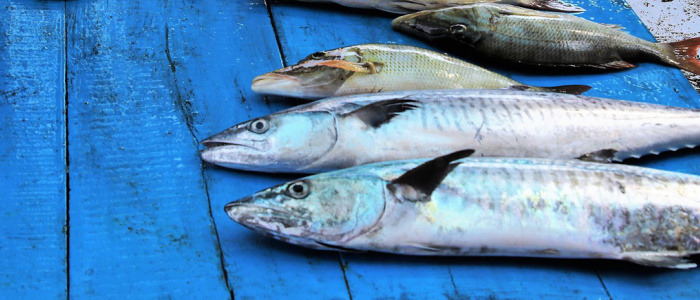
New figures from the international not-for-profit, the Marine Stewardship Council (MSC), show that ending overfishing could provide nutrition for millions of additional people, helping to prevent serious and life-threatening health conditions. Seafood is one of the most nutrient-rich foods, packed with vitamins, and already provides a fifth of the daily protein needs of over 3 billion people globally. [1]
Latest estimates suggest if all global fisheries were managed sustainably, 16 million tonnes more seafood could be harvested every year. [2] This additional catch together with the 96 million wild seafood catch currently projected for 2030 [3] could prevent iron deficiencies in 4 million people and vitamin B12 deficiencies in 18 million people [4]. This could help alleviate anaemia, a global public health problem that affects nearly half of young children under five and 40% of pregnant women globally.[5]
The increased total catch could also help eliminate zinc and calcium deficiencies in more than two and a half million and 24 million people respectively while increasing vitamin A intakes for five million people.[6] Deficiency in vitamin A alone is the leading cause of preventable blindness in children.[7]
The MSC said that to realise the benefits of aquatic foods, governments must put them at the heart of their national food strategies, setting enabling rules to ensure that sustainable fisheries are recognised and supported, as well as improving access to nutrition-rich seafood, especially in emerging economies.
The not-for-profit’s analysis found that 38 million people missing out on healthy levels of essential Omega-3 fatty acids (DHA and EPA), [8] which are mainly found in seafood [9], could also have their daily requirements met if the oceans are fished sustainably, helping to reduce deaths from heart disease and strokes.[10]
The estimates are derived from the Aquatic Foods Composition Database,[11], a product of the Golden Lab at the Harvard TH Chan School of Public Health, and presents the most comprehensive global database of more than three and a half thousand aquatic food species and hundreds of nutrients, created to increase the understanding of the nutritional benefits of aquatic foods.
Recent studies [11] have also shown that nutrients from seafood are better absorbed and utilized by the body than nutrients in vegetables and food supplements. However, the challenges facing the ocean are also immense, with over a third of global fish stocks exploited at an unsustainable level [12].
“We are facing unprecedented pressure on the world’s food production systems, with the global population set to reach more than 8 billion by 2030, as well as the potentially catastrophic impacts of climate change. Wild fish is already playing a critical role, providing protein for billions and offering a natural, low-carbon form of food production that is hard to beat," says Rupert Howes, Chief Executive of MSC.
If more global fisheries are managed sustainably, we can provide even more of the nutrition needed to feed a growing population. But this requires urgent action, as a third of the world’s fish stocks are now under threat. If we manage to tackle the challenge of overfishing, then we help address food insecurity and prevent ill health. Consumers, fishers, and businesses are already supporting this shift. But we need governments to do more, ensuring the urgent transformation of our food systems globally.” he adds.
This analysis, included in a new briefing on the importance of wild-caught seafood in sustaining a growing global population, was released by the MSC to mark the UN’s 15th World Oceans Day on Thursday 8 June 2023.
Read the full article and listed sources at www.msc.org



